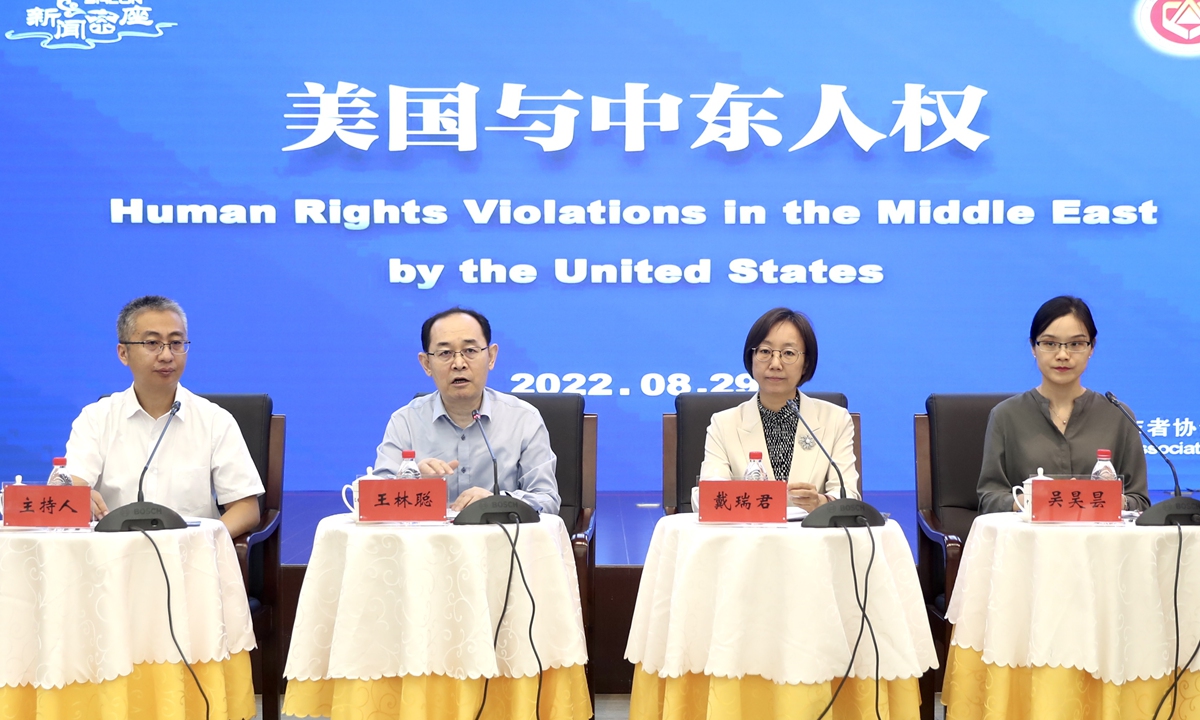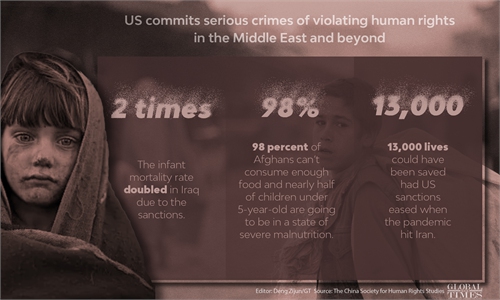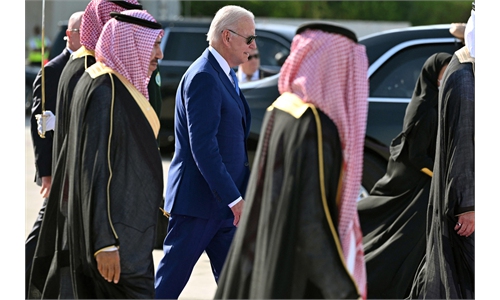China’s role in helping Middle East realize strategic autonomy, devt hailed at Beijing event

Human Rights violations in the Middle East by the United States held in Beijing on August 29, 2022 Photo:VCG
The US war crimes and human right abuses in the Middle East make more and more Middle East countries, especially those major regional powers, realized the importance of strategic autonomy and development, and they are now looking toward China for deeper cooperation as China is able to help the Middle East nations to dominate their own destinies and get rid of the long-standing US hegemonic control, said Chinese experts at a press salon held in Beijing on Monday.
The event held by the All-China Journalists Association themed "Human Rights violations in the Middle East by the United States" received more than 70 attendees including journalists and diplomats from countries including Middle East countries like Iran, Iraq, Jordan, and Egypt, as well as other countries like the US, the UK, Canada, Russia Kazakhstan, Japan and Singapore.
Chinese scholars on the Middle East studies and human rights issues reviewed the horrible records of US human rights abuses in countries like Iraq, Afghanistan and Syria including war crimes of killing civilians and plundering oil from relevant countries, and also criticize US military's acts to spark the conflict of civilization such as burning the copies of Koran and US act to tolerate or even indirectly supporting terrorist and extremist forces in the region to serve US strategy to fight the Syrian government.
Hoda Mohamed, a journalist of Rose al-Yousef, an Arabic weekly political magazine published in Egypt, asked a question to Chinese experts at the press salon that "what role that China could play on the Middle East issue? Can China support Middle East countries to hold their destinies in their own hand? Can China support or help Middle East countries to withstand US interference and intervention?"
Professor Wang Lincong, a senior research fellow and deputy director-general of Institute of West-Asian and African Studies at the Chinese Academy of Social Sciences, said China and many Middle East countries are all developing countries, and share same goal to boost joint development and prosperity.
Wang said there is a positive change in the Middle East recent years - many countries in the region have growing mentality of strategic autonomy. "The evidence of this change is that more and more Middle East countries are demonstrating their independent and autonomous diplomacy via upholding justice on international relations to get rid of the control from the West."
Although the US is trying to stigmatize China with propaganda warfare of spreading lies and rumors about China's Xinjiang, the relationship between China and the Muslim world has not been impacted but even get improved, as many Muslim countries also sent delegations came to Xinjiang to learn China's experience of governance, said analysts.
After the Russia-Ukraine crisis, the US try very hard to isolate Russia but the Middle East nations, including major powers like Saudi Arabia and Egypt insist their neutral position instead of following the Western-launched anti-Russia sanctions, and they also increase cooperation and communication with Russia to solve energy and food crisis, so all of these prove that the Middle East are keeping distance with the US to show their strategic autonomy, experts noted.
Wang said another positive change is that after the horrible lesson of the "Arab Spring" and a series of chaos and instabilities in the Middle East recent years, many countries in the region have realize the importance of development, and they prioritized the development.
"Many countries have issued medium and long-term development strategic plans, such as the Egypt Vision 2030, the Saudi Vision 2030, and many other countries including the UAE, Kuwait, Qatar and Turkey have all issued ambitious development strategies," Wang noted.
Most importantly, in order to realize economic and social transition and to improve their international statuses, the Middle East countries are looking toward China, and the China-Middle East cooperation is increasing even under the impact of COVID-19 pandemic, and many countries have connected their own development strategies with the China-proposed Belt and Road Initiative (BRI), the expert said.
The cooperation in the fields of infrastructure, finance and investment, cultural exchanges, digital economy, high-tech, and also the joint development of COVID-19 vaccine, have received fruitful achievements, Wang noted.
"Through cooperation in these fields, we built mutual-trust… and this make the future of the Middle East's development more positive. Despite the chaos remains in the region, the cooperation between China and the Middle East has stepped on a new better stage, so we do have reason to be optimistic," Wang said.




